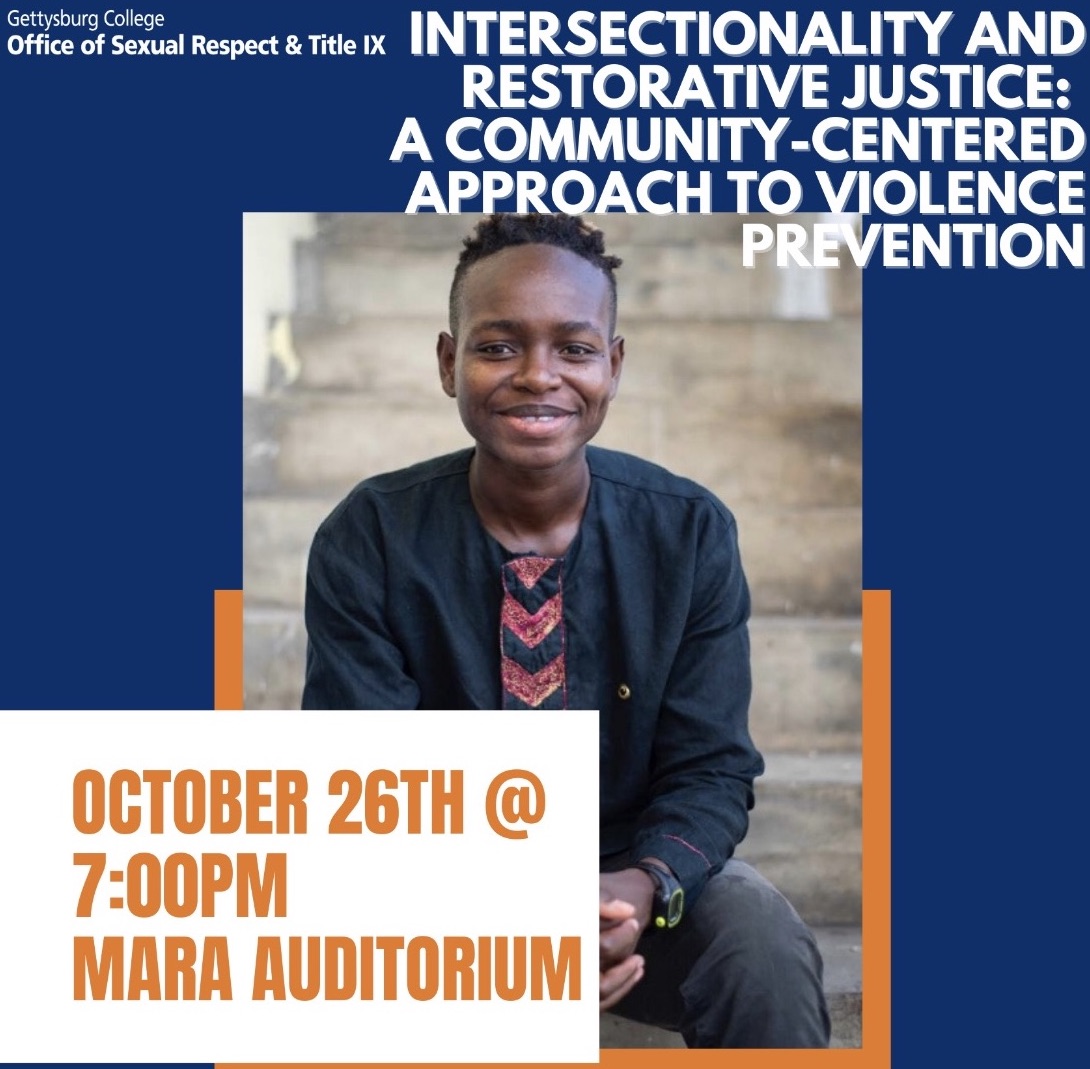Intersectionality and Restorative Justice With Dr. Anima Adjepong
 By Gracie Meisner, Staff Writer
By Gracie Meisner, Staff Writer
On Oct. 26, Dr. Anima Adjepong visited Gettysburg College to hold an interactive workshop, Intersectionality and Restorative Justice: A Community-Centered Approach to Violence Prevention, which offered participants the opportunity to examine how gender, race, class, sexuality, and ability shape experiences of violence.
As a sociologist, Adjepong researches culture, identities, and social change in West Africa and the diaspora. They received their Ph.D. in Sociology from the University of Texas at Austin and an A.B. in Comparative Literature from Princeton University. Adjepong works to create knowledge that drives self-reflection, encouraging action to spark positive social change.
Adjepong began their workshop by revealing the three takeaways they hoped participants would gain from the workshop: understanding intersectionality as a structural paradigm, embracing differences and building community, and how to integrate community-oriented approaches to violence prevention into our lives.
Adjepong gave attendees the opportunity to reflect, first individually, and then to the group, on the intersectionality within their own lives and how multiple aspects of identity, together, shape the diverse experiences each individual goes through.
Adjepong then spoke on differences, challenging audience members to consider what differences they are aware of amongst people and how we, as a whole, can better acknowledge and embrace these differences as a force for good through a series of questions they posed.
“What does it mean to recognize and acknowledge the diversity in our communities? What are the real differences between us? What structures are responsible for those differences? What differences spark creativity?” Adjepong asked.
Adjepong then moved into a segment that focused on how to respond to incidents of interpersonal violence with a community ethos and intersectional analysis. Adjepong gave audience members realistic scenarios regarding bigotry, racism, and trans-antagonism, and worked with them to come up with solutions to address the situations. They stressed the importance of being an active bystander.
“Being an ally means doing the work even if no marginalized people are present,” said Adjepong.
The final part of the workshop focused on how individuals can empower themselves and one another to respond and interfere in situations of violence and hate. Adjepong concluded by offering advice to the audience: decenter yourself, understand and acknowledge the diversity of communities, interrupt bigoted comments from a place of solidarity and allyship, and intervene in potentially harmful situations to positively affect the outcome.
